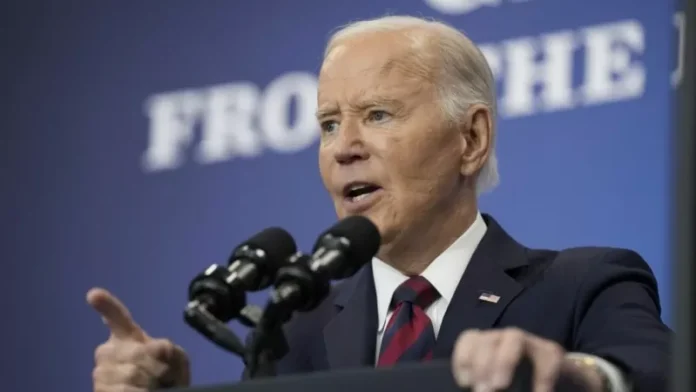In an effort to counter growing cooperation among China, Iran, North Korea, and Russia, President Joe Biden has approved a new national security memorandum. The White House announced on Wednesday that this memorandum, which contains four broad recommendations, will serve as a road map for the incoming administration as it looks to deal with the tightening relationships between America’s most prominent adversaries and competitors.
The memorandum, which has been in development since the summer, is set to guide the Biden administration’s approach towards these four countries from day one. According to two senior administration officials, it has been carefully shaped to address the current challenges and provide a solid foundation for the incoming administration’s national security policies. However, due to the sensitivity of its findings, the memo will not be made public.
The first recommendation in the memorandum focuses on improving interagency cooperation within the U.S. government. In order to effectively address these adversaries, it is crucial for different agencies to work together and share information. The second recommendation emphasizes the need to share information with allies, as the cooperation between these four countries has become a cause for concern not only for the U.S. but also for its allies.
The third recommendation suggests calibrating the use of sanctions and other economic tools in a way that maximizes their effectiveness. Economic tools have been used as a means of pressure on these four countries, but it is important to ensure that they are utilized strategically and with the desired impact. Lastly, the fourth recommendation highlights the need to prepare for potential simultaneous crises involving these adversaries, as the U.S. needs to be equipped to handle such situations effectively.
The concern over cooperation among these four countries is not a new development. However, it has accelerated following Russia’s invasion of Ukraine in 2022. As Russia has become increasingly isolated by the international community, it has turned to Iran for military support. This includes drones and missiles, while North Korea has received financial and technological aid from Russia for its manufacturing and military capabilities.
Furthermore, the officials noted that Russia has effectively accepted North Korea as a nuclear weapon state, further complicating the already tense situation. China, on the other hand, has deepened its military technical cooperation with Russia and the two nations have even conducted joint patrols in the Arctic region, causing concern for the U.S.
Despite their differing worldviews, both President Biden and outgoing President Donald Trump recognize the importance of addressing these issues and have sought to coordinate on national security matters during the transition. This memo is not meant to push the Trump administration towards a specific policy option but rather to provide valuable insights and guidance for the incoming administration to effectively handle these challenging foreign policies.
In the words of one of the officials, the memo aims to build the next administration’s “capacity” as it shapes its policies towards these adversaries. With the combination of interagency cooperation, information sharing with allies, strategic use of economic tools, and preparedness for potential crises, the incoming administration will be better equipped to handle the challenges posed by China, Iran, North Korea, and Russia.
The approval of this memorandum by President Biden is a positive step towards promoting national security and addressing the growing cooperation among these four countries. It serves as a testament to the commitment of the new administration to tackle difficult foreign policies and protect America’s interests. With this guidance in hand, the Biden administration can confidently navigate the complex landscape of international relationships and ensure the safety and security of the nation.

